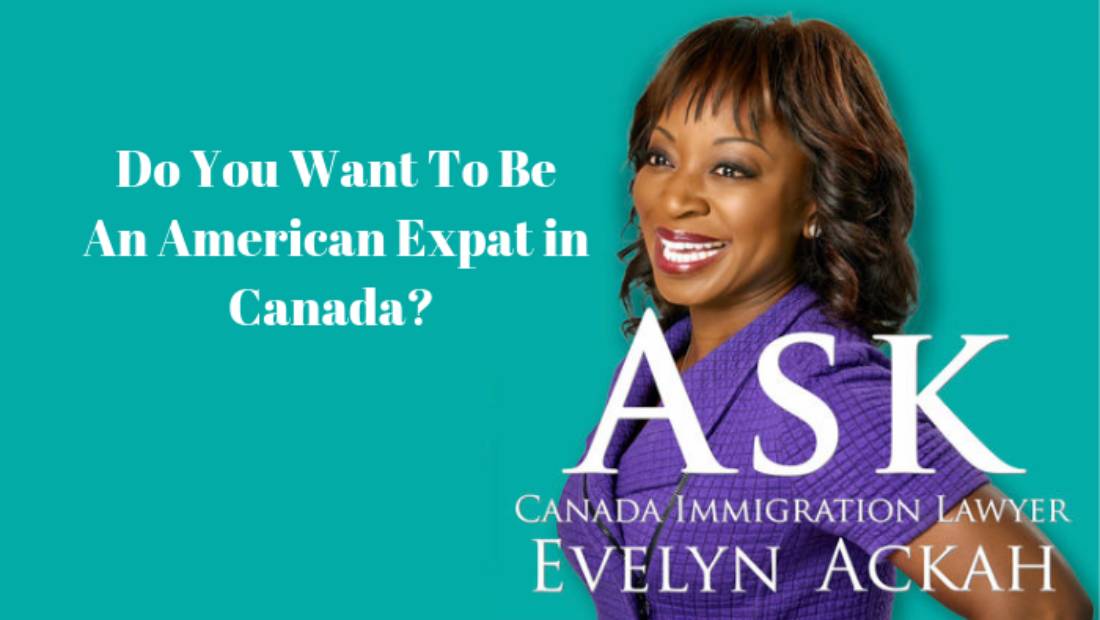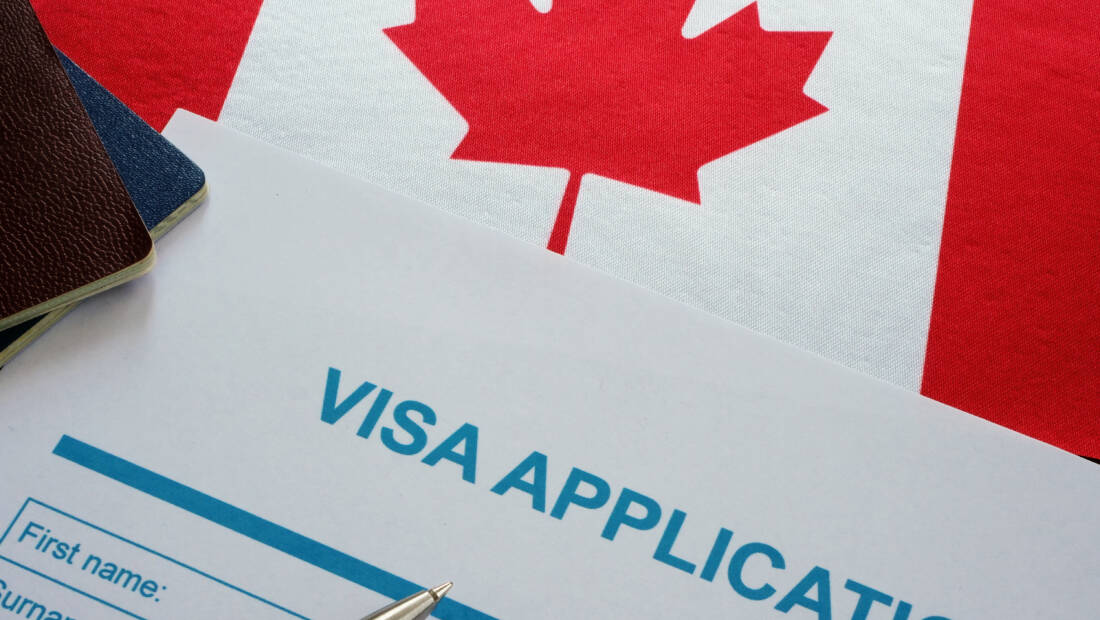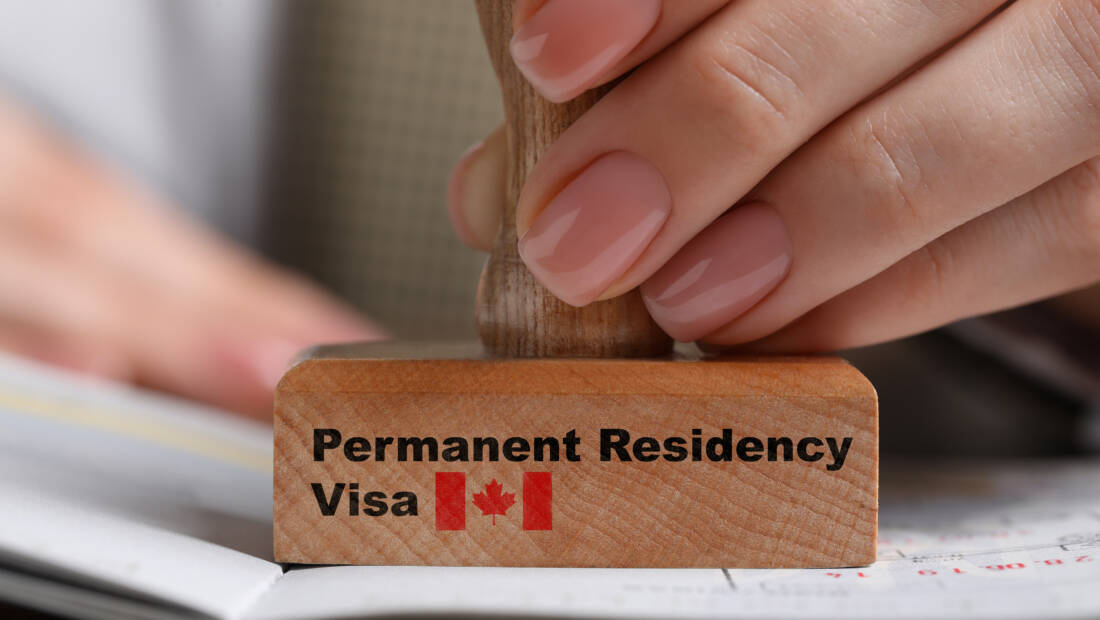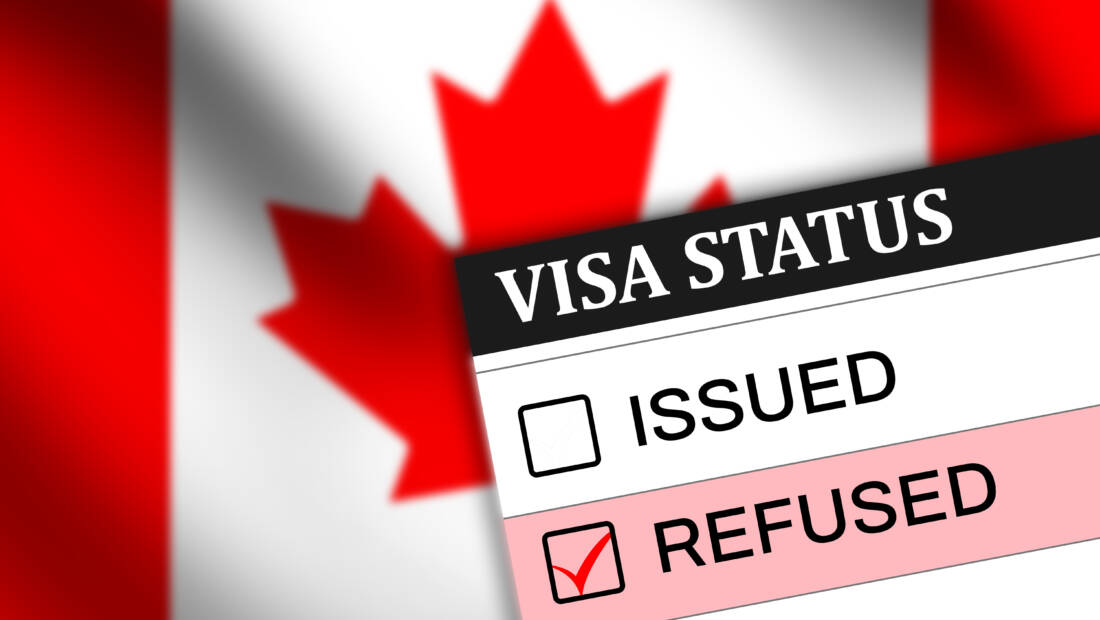Or listen on your favourite podcast app
Show Notes:
Important Info For Americans Who Want To Move To Canada
At Ackah Business Immigration Law, we are getting more and more inquiries from Americans about their eligibility to move to Canada for personal and professional reasons
- people who are concerned with US politics, the economy and overall well-being
- parents looking for a safe place to raise their children
- retirees who like the common language and proximity of Canada
Canada immigration statistics show:
- Over 2017 and the first quarter of 2018, 1,055 more Americans were granted permanent residency than the average number during the Obama administration.
- Student visas granted to U.S. citizens increased by 1.012 in 2017, compared to the average number over the eight years before that.
According to a recent poll,
The desire to move to Canada, which was widely reported following Trump’s election in 2016, remains intact.
Express Entry: Are You Eligible to Move to Canada?
Canada's Express Entry system is based on an eligibility points system, which grades potential immigrants on many factors including work experience, age, education and English and French language fluency. The best-qualified applicants receive an Invitation To Apply for Permanent Residence, which includes the right to work in Canada and can lead to citizenship. New immigration rules make it easier for Americans to work and stay in Canada:
- Applicants can earn points by working in Canada, which is easier for Americans to do because Canada and the U.S. are members of NAFTA
- The number of Invitations To Apply for Permanent Residency has increased as Canada has a 3-year goal to admit 1,000,000 immigrants
- Already having a job offer before arriving in Canada became much less important when the number of points for a job offer decreased from 600 to 50
Immigration rules change frequently. Contact Ackah Law today at (403) 452-9515 Ext. 100 or 1-800-932-1190 or email us directly to find out if you are qualified to move to Canada.
Note: Ackah Law cannot help you find a job in Canada.
Learn More:
- Download Our Free eBook: How to Move Canada: A Guide for Americans Moving North
- Watch: How American Citizens Can Move to Canada
- Intra-Company Work Permits and Job Transfers to the U.S. and Canada
- NAFTA: Work Permits Under the North American Free Trade Agreement for U.S. and Mexican Citizens Entering Canada
- Study in Canada
- Case Study: Americans Move to Canada
Transcript
Evelyn Ackah:
Good day everyone. This is Evelyn Ackah from Ackah Business Immigration Law. Thanks so much for joining me here. Today, we are talking about how to move to Canada, a guide for Americans looking north. And also, this will be listened to on our podcast, Ask Evelyn Ackah Immigration Lawyer. Our podcast is called Ask Evelyn Ackah Immigration Lawyer. And that this will also be copied on the podcast. And you also find us on YouTube. So, hopefully, all your questions will be answered. Thank you again so much for joining us.
Evelyn Ackah:
And what I want to do today is go through all the different ways to move to Canada as an American citizen. I am seeing more and more that Americans are calling us, looking for ways to come, whether it's political or whether it's lifestyle or school or family or medical issues, whatever it is, they're looking for ways to move to Canada and we have all the solutions for them. So, I'm going to go through a bit of a formal presentation however. I see people are on as well. And so, thank you so much. If you have questions, please feel free to write them in and I will answer them as we moved through the program today.
Evelyn Ackah:
Again, thank you so much for joining me at Ackah Business Immigration Law. So, many of the people that reach out to our law firm in Canada are wondering, "How can I move to Canada? I want to be a permanent resident. I want to maybe make a new life in Canada." And I've been seeing more and more Americans calling us and some have already moved with our assistance. And so, I thought we would redo this presentation again. About a year ago, we did this and it was a webinar. So, we provided lots of information. And we have all this information as well on the ackahlaw.com page. It's one of our eBooks that you can download for free and learn more about the things we're going to talk about today.
Evelyn Ackah:
So, one thing I have to say is immigration rules are constantly changing. And so, today, I'm giving you what the law is today and what the regulations are today. But they could change. And so, you always want to check with a lawyer or professional with expertise to make sure before you make life-changing decisions, if things are as they are. So, let's just talk about this. Are you ready to move to Canada? One of the best things that I use to move to Canada with the most frequently is the NAFTA, the North American Free Trade Agreement. It will be changed or renamed under the U.S.-Mexico-Canada Agreement but for now, it is still considered NAFTA.
Evelyn Ackah:
And what's so great about this is is it allows for people who qualify to move to Canada for employment very quickly. Unlike other people from other countries, NAFTA allows for them to move to Canada, start their lives and start working right away. So, we're going to use NAFTA quite a bit today. And we're going to talk about all the best ways to move to Canada. The other thing we want to talk about is we're going to talk about what happens maybe you're not a U.S. citizen. Because again, NAFTA only applies for those who are U.S. citizens, not even green card holders can benefit from NAFTA.
Evelyn Ackah:
And oftentimes, people confuse this. They think, "I might be living in the States legally." They think, "I'm a green card holder. I'm about to get my green card. This will apply to me." NAFTA only applies to those who are U.S. passport holders, citizens only and Mexican citizens of course. So, we're also going to talk today about what happens if you don't qualify for NAFTA because you might be a temporary worker in the U.S. or not finished your citizenship process yet? We look at other ways and one of them is the Labor Market Impact Assessment.
Evelyn Ackah:
So, we're going to start and provide you a lot of information. Please let me know if you have any questions at all. I'll be happy to assist. And the main thing is that NAFTA is fabulous because it allows for three different categories, main categories to come to Canada. The first one is as a business visitor. So, that means you can come to Canada as a NAFTA business visitor. If you're coming for meetings, if you're coming for business development, if you're coming for job interviews, that category under the NAFTA business visitor is the one for you.
Evelyn Ackah:
We always recommend when people come to Canada, even if you're just coming to look at potential job opportunities or look for a place to live, if you're certain, this is where you want to be. We recommend you always have a letter or some invitation letter, whether it's for a family member or contact or let's say the company that's interviewing you. It helps you because it verifies what it is that you're saying at the airport.
Evelyn Ackah:
So, if you're coming in under NAFTA business visitor, you're coming as a short-term worker... Sorry, a short-term visitor and you're not getting paid in Canada. And you're coming for training for meetings short-term and you're leaving and you have no immigrant intention at this point, that is the category for NAFTA business visitor. So, when they ask you that Canadian border services, the officers say, "What are you doing? What are you here for?" You need to be clear that you're coming for meetings, coming for business visitor purposes.
Evelyn Ackah:
If you say you're coming for work and you're not applying for work permit, you're going to be sent into secondary immediately and you're going to have issues. NAFTA business visitors or tourists as well can come to Canada for up to six months. However, I don't recommend that you come with a ticket that says you're leaving six months later. Because I always suggest that they're going to be wondering, how are you going to support yourself? What are you going to be doing? What is the intention? Are you going to be working? How will you make money while you're here?
Evelyn Ackah:
So, it's important to be thinking about ways to be here for short-term, look for a place to live or look for employment that hopefully will fit under NAFTA and you can then move into being a temporary foreign worker. The next thing we're going to talk about is the NAFTA Professional category. This is really the best way for us to bring skilled and educated professionals to Canada from the United States, from Mexico, under the North American Free Trade Agreement. There is a category called NAFTA professional, which lists about 68 professions currently better recognized but based on education.
Evelyn Ackah:
So, for instance, it lists lawyer, teacher, accountant, engineer, computer systems analyst, software developer, all of those engineering categories, scientists, they're all listed under the NAFTA Professional. And the value of this program is that once you can show you have a degree and you have a job offer, you are able to submit all your material. There is more than just those two things but they're the critical things. Job offer, a copy of your degree, your resume, your qualifications, your professional bio, all of that gets put together into a package.
Evelyn Ackah:
We also do a legal submission letter that explains to the Canadian border officials, why it is you qualify for this category. You basically want to walk them through the regulations so that it's going to be simple and clear to them that you have an engineering degree and you're coming to accept a job in Canada as an engineer and this is why you qualify. And we ask for three years. What's fabulous is it lets you have a work permit to work in Canada, to live in Canada, to bring your family with you to Canada for three years and it's renewable for a very long time. It's basically renewable indefinitely.
Evelyn Ackah:
However, I say that over time, I've seen six years and nine years, in 12 years, you should be a permanent resident of Canada by then. You don't want to wait much longer. I think after the first three years, if you're happy, your employer's happy and you've got ways to move to permanent residency, do it within the first year or two to give yourself every option. What I love about this application is because it's a port of entry application, you literally leave the airport, you come to Canada, you apply for your social insurance number, which is the equivalent of the social security number for Americans.
Evelyn Ackah:
And you get a bank account and you start working. You're on the payroll. You start your life. You also are able to bring your spouse. So, your common-law partner if you're unmarried, your spouse if you're married and your children and even your same-sex partners can come with you to Canada as long as you can show that you've been cohabiting and in a long-term relationship. They are eligible for an open spousal work permit, which is fabulous. It means they don't have to have a work permit that indicates their employer like yours will be, it'll say company ABC on your employer but for your spouse, it will say opens work permit.
Evelyn Ackah:
They can work for any employer in Canada that they choose. So, there's no delay for your spouse to get working and contributing and helping with the plans in Canada. As well, your children can attend school immediately. They will get a visitor record that is for the same three years. And if they're five years and up and they're attending kindergarten to grade 12, they can attend school and they don't need a study permit. They can be here under that visitor record and they can attend school. So, the NAFTA Professional category is my favorite category. We do this every day for people moving from Canada, from... Sorry, from U.S. to Canada every day. Because it allows that smooth, fast, seamless entry to Canada. And then they begin their lives.
Evelyn Ackah:
Let's say that your job is not on that list of NAFTA Professionals. Because nowadays, the industries and the categories are so different. There's so many new high-tech IT-based jobs that are not actually listed on the old traditional NAFTA Professional listing. So, if you don't fit into one of those categories easily, we even have technical writer. We've got people who are in the arts. There's nothing for them under the NAFTA category. So, then, we have to be more creative. Sometimes we bring people in as NAFTA consultants.
Evelyn Ackah:
So, for instance, if you have an expertise, you have a degree or you have five-plus years of experience in a really interesting field, that's specialized, that you teach about, that you consult on, that you do public speaking on or audits on or whatever it is that your expertise is, if it's not listed under NAFTA Professional, there may be a way to be engaged in Canada by a Canadian company as a NAFTA consultant. And the difference I always say between an employee and a consultant is that you're here to provide your expertise, you provide services which are directed toward improving the operations of the organization.
Evelyn Ackah:
You provide expertise and knowledge to the management of the client. They implement or their people implement but you as a consultant, you're a little more arm's length. So, I always say arm's length versus employee, employees do consultants advise. So, depending on the nature of your work, you could be an advisor. You could be a consultant and you could live in Canada for again, up to three years. I'm always hesitant to ask for a three-year consultant work permit in Canada because it starts to look like you're a worker. And we don't want that. We want you to be clear that you're consulting. So, I usually ask for two years at the most.
Evelyn Ackah:
And in that example, you must have a consulting agreement that shows you've been engaged by a Canadian entity to provide these services and you're being paid by the hour, by the day, by the week or by you preparing an invoice that then receives payment. You're not on the payroll and you're generally not receiving benefits either. But that's another way to move to Canada as a worker under the consultant category. Okay. Now, one of the other ways to move to Canada is impossibly under the NAFTA Intra-Company Transfer. This is equivalent to the United States, L1A and L1B under managerial executive, which is L1A in the U.S. or L1B, which is the Intra-Company Transfer for specialized knowledge workers.
Evelyn Ackah:
In Canada. We have the exact same processes but it's much easier, I would say. So, to move from the U.S. to Canada, let's say you work for a large North American business and you say, "I'd like to accept a transfer. I want to move to Canada and I want to work for your subsidiary or your head office that's in Canada. And I've already been working for you in the United States." These are really another great way for people to look at moving to Canada by transferring.
Evelyn Ackah:
So long as you've worked for that related entity, so they can be corporately related by shares, assets or at the very top level, the ownership could be similar, then you're able to transfer. So long as you can show you've worked for them for at least one year in either a specialized knowledge position or a managerial executive role. Again, as an American citizen, we can transfer you under this category. And that's what makes it so great. The application can be done at the airport or the border. You'll get three years and you'll be able to bring your family and all your possessions and move to Canada.
Evelyn Ackah:
And then from inside Canada, you can then look at ways to become a permanent resident. So, we'll be talking about that as well, how American citizens can come to Canada and become permanent residents. So long as you can show one, you fit into NAFTA Professional, two, you fit into NAFTA Inter-Company Transfer opportunities to transfer. And then we're going to talk about what happens if you don't fit into those two categories under NAFTA. There's something called a Labor Market Impact Assessment. This is similar to the United States labor certification process, where your Canadian employer to be will advertise the position.
Evelyn Ackah:
They've offered you the position but if they didn't do all the recruitment the right way or maybe they used an executive search company to find you because you've got great skills that they need in Canada, they can create an opportunity for you and allows them to hire a temporary foreign worker. That's called the Labor Market Impact Assessment. And once they advertise the role or satisfied our Canadian equivalent of our department of labor, it's called Service Canada. Once they satisfy them that they have made efforts to try to hire a Canadian and that you are the best candidate, they will get an LMIA confirmation approval.
Evelyn Ackah:
And this is what allows the Canadian company to hire a foreign worker that is not under NAFTA Professional, that is not an Intra-Company Transfer but that is new to them completely and does not even qualify under NAFTA. You could be in the United States as again, as I said, as a worker or you could be a student that just graduated or you could be a green card holder but you want to come to Canada. If they are able to get that LMIA for you, you can move to Canada as a temporary foreign worker for initially two years and it's renewable and you can apply for permanent residence in that timeframe and you may finish the whole process in that two to three year period of time.
Evelyn Ackah:
So, those are the ways I would recommend are the best. Something I'm seeing more and more is we've had some of our American clients who may not qualify yet for Express Entry because they may be too old. Unfortunately, Express Entry seems to discriminate based on age. That's the permanent residence process that allows people who are living elsewhere to qualify based on points. If you get a certain number of points, you may be eligible to be invited to apply for permanent residence. And that process can take a year but you can move to Canada as a permanent resident equivalent of a green card holder.
Evelyn Ackah:
I know right now in the States is taking sometimes up to 10 years to become a green card holder. So, the idea that it could happen in Canada within a year, a year and a half is fabulous. And this is what we want to encourage. But if you're over 40 like some of us here, you may not even qualify to get into the pool that then you need to get at least 470, 475 points. So, if you can't even get into the pool because you're over 40, then they're looking at other ways to come to Canada. One of those ways would be maybe you decide you want to go to school in Canada.
Evelyn Ackah:
So, we're seeing some of our clients now who've called us after they've already done this want to talk about the long-term strategy, they have been accepted into school in Canada to do a master's or PhD or even a two years diploma certificate program and then the whole family can come. It allows them to move to Canada and the whole family can come and the spouse can get a work permit. And that person who's attending school can also work part-time for 20 hours a week so they can help support themselves while they're here in school.
Evelyn Ackah:
And then from the graduation of their program, then they can work and then they can move to permanent residence. So, this is more of a longer-term strategy to get to permanent residence but it's definitely a strategy that we suggest may work for some people, depending on your personal circumstances. Not everybody wants to go back to school. I'm not sure I want to go back to school after eight years of being in school. But some people that might be the only way and it's working for them because it's creating opportunities for their family to start a life in Canada and they're absolutely strains from graduation, to postgraduate, to permanent residence and then of course to citizenship.
Evelyn Ackah:
So, those are the main ways that we've been seeing more and more people coming to Canada. I think that it's important that if you're considering going to school, you look at making sure the program that you're looking at is a designated learning institution. It must qualify as a government-approved school. Some schools don't. So, you have to be careful, some makeup schools, for instance, or esthetician schools, they don't qualify as academic programs. So, you have to check and make sure that your school is on the list and it's on the list as well, not just for a study permit but that it's on the list for postgraduate work permit.
Evelyn Ackah:
You will need that year or two or three years of working after you graduate to allow you to build up and prepare for becoming a permanent resident. Okay? Are there any questions on this while I take a pause? If there's any questions, I'm happy to answer them. And thank you again so much for joining me here at Ackah Business Immigration Law. We really would love to be able to assist you all with your permanent residence, any of your friends or family feel free to refer them to us and we'll take care of them.
Evelyn Ackah:
I'm going to go forward now and focus on Express Entry. The Express Entry permanent residence stream, this is the stream where you don't come as a worker first, you don't come as a student first, you want to come to Canada as a permanent resident where you're not limited in any way with a work permit that says you can only work for this employer that brought you to Canada. So, that's something to think about. We always tell employers, "When you bring somebody to Canada, either as a worker for you or under the Labor Market Impact Assessment, their work permit is tied to the employer."
Evelyn Ackah:
And so, that means for that year or two or three, they can only work for you. But when they become a permanent resident, they are free to do whatever they want. So, you need to think about that in terms of when you support your people or how that process occurs. If you help pay for their PR, sometimes employers will create a bit of a connection or a contract that says, "We're going to pay the lawyer for this massive application that could take a year or two on your behalf but you have to stay with us for a year or two after or you'll have to pay back a portion of the legal fees," whatever the arrangements are, as long as it's reasonable.
Evelyn Ackah:
For those people who want to come as permanent residents and don't want to wait as a worker in Canada and they don't want to make a move and give up everything they know in the U.S. before they come, the strategy for that is called Express Entry. And we have lots of on the ackahlaw.com website, A-C-K-A-H-L-A-W.com site. We have a book you can download, we've got Express Entry points calculator that will help you determine if you may qualify.
Evelyn Ackah:
If it looks like you may get more than 470 points, then you can call us and we can reassess and make sure and then we can assist you with your permanent residence. But the Express Entry PR process was launched January, 2015. And this was a whole new program. Again, the government changes things every few years and you have to make sure you are up to date on the program and the process. This is a program that allows people who are still from their home countries. So, if you're still in the United States, it allows you to apply for immigrant status.
Evelyn Ackah:
And you essentially have to look based on your age, based on your English and French ability or French education as well. Those things all get assessed. And then you get a number. And you go into a portal where you upload your age, your education, your work experience, if you're married or single, all those things. If you have family in Canada that are immediate family, you get some points for all of that. Then, the portal spits out a number and it'll say, "One, you don't qualify because if you're over 40, even if you have a PhD, honestly, it's very difficult to move from that initial federal skilled worker classification."
Evelyn Ackah:
You need to get that first piece of points that has to be at least 67. So, what we're finding is people over 40, even with a PhD and lots of work experience may not qualify because of age. Those between 25 to 40, they have the highest chances of points. And the government did that strategically. They wanted to attract young educated professionals to come to Canada because we have an aging population here. We're all getting old. I'm getting old. Everyone's getting old.
Evelyn Ackah:
And they wanted to make sure that we have enough young people in the workforce to help maintain our Canadian Pension Plan so that everybody's going to benefit from retirement when the time comes. You contribute to it and then by the time you retire, everyone else will benefit. And then you'll be able to benefit. But if everybody's 45 plus 50 over, they're going to be accessing the Canadian Pension Plan sooner. And that means that there's going to be a real burden on the younger professional workers. So, we want to attract more of them. That is why it's harder now for people who were 40 to come.
Evelyn Ackah:
So, let's say you're 35, you have a master's degree, you've worked for five, six years in your profession and you can verify all the professional employment, you'll probably get 475, 480 points, guesstimate. Assuming that you speak English beautifully, you pass your IELTS, your International English Language Test. Maybe you have some French, even if it's high school or university French, it might be worthwhile to take the TOEFL or the equivalent of the IELTS for French-speaking people because it will give you extra points. Every point counts.
Evelyn Ackah:
So, then, you'll find out that you have 475 points, let's say and you get invited to apply. It's called an ITA, Invitation to Apply for Permanent Residence. When you get that email, you have 60 days to submit all the rest of your information. So, it's police certificates, do your medicals, reference letters from employers, all of those things that verify what you initially indicated in the portal have to be uploaded to the portal and then they have to be verified.
Evelyn Ackah:
So, that process takes probably about six months before the government can verify that everything you've uploaded is legitimate, your marital status, your education, all of those things have been verified. They do criminal check as well for every place we've lived for six months or more. They need to know that there's no reason why you would be inadmissible to Canada. And so, once that's all done, then you will be given a confirmation of PR and you'll be told that your permanent residence will be finalized and approved.
Evelyn Ackah:
If you're in the United States, you'll be issued a letter that you can use for permanent residence to come to Canada. If you're from another country and you're applying for permanent residence, you will finish your processing at the local Canadian High Commission or consulate in your country. So, it's really important that you do this well because we don't want people to lose time because they tried it on their own and they missed points because as you get older, you lose points. So, every year counts, every month counts.
Evelyn Ackah:
So, we say do it right the first time, contact a professional like myself, contact an expert in permanent residence and we can help you ensure that you will qualify. We've not had anybody refused for their permanent residence under Express Entry because we do that one-hour consultation at the front end. We need to know that you will be a hundred percent certain to qualify so long as you can provide all of the information that we ask for and we verify it. Okay? So, that is something that I really think is important.
Evelyn Ackah:
The benefit of permanent residence is it allows you to bring your family, your immediate family. Your spouse will become a permanent resident. Your children will become permanent residents. That means they can go to school in Canada and pay the same fees as Canadians, which is a huge savings versus paying foreign fees. And they can start their lives in Canada. And after three years plus, depends on how much time you spend in Canada versus outside of Canada, you may be eligible to apply for Canadian citizenship.
Evelyn Ackah:
And so, this is really what I want to stress today is there are ways to come to Canada. The Canadian immigration processing times and procedures are much less onerous than they are in the United States right now. So, if there's an interest at all in checking out Canada, you should contact us. You should come to Canada as a visitor, make sure you love it. Different climates from Vancouver to Prince Edward Island. So, you can decide where you want to be. And maybe look at ways to move here and start a new life.
Evelyn Ackah:
Another benefit that we hear more and more people are looking at to when they come to Canada is our benefits, our health system, which is quite incredible. We're very grateful for it. We're very lucky for it. We pay for it. But one thing I love about being a Canadian citizen is that we never worry about if I get sick with something tragic, something serious that I'm not going to lose my house, I'm not going to lose all my savings and my financial situation won't be impacted negatively because I got sick. Once you're here contributing to the Canadian economy, you get the benefit of our healthcare system.
Evelyn Ackah:
And I think that's really, really important in terms of looking for ways to come to Canada. Right now, we're hearing from people who as well are concerned about some of the political situation, depends on your politics, of course. But some people are reaching out saying, "We're concerned and we want to find ways to come to Canada. We want our options." And so, we're giving them all of the options from worker, to permanent resident, to citizenship, to study permit holder. Those are all the ways to come.
Evelyn Ackah:
Another benefit of moving to Canada if this is something you want is that you can also sponsor your family members, your parents. So, once you become a permanent resident of Canada or a citizen of Canada, you can sponsor your parents to come to Canada as well. So, that might be a way to keep the family reunification piece where everybody is together in Canada. I would definitely look at that as well. Sometimes people hesitate to make the commitment to move because they don't want to leave their elderly parents behind.
Evelyn Ackah:
There are ways to bring them under the family sponsorship stream. They become permanent residents if you get into the lottery. It's a bit of a lottery to get in but you'll probably get in a few years if you do it every year. Or, if you have children or even if you don't have children but you're in Canada, you can also do what's called a super visa. And this is what allows parents to come to be with their children for long periods of time as long-term visitors. And in this case, they need to be able to show that they have medical benefits.
Evelyn Ackah:
So, they have to bring their own benefits and make sure that they can take care of their health while they're in Canada. You don't get the benefit of the Canadian healthcare system unless you are a permanent resident or you have legal status as a temporary worker. Coming as a visitor doesn't give you status. So, that's something that I think is really important to consider when you're looking at ways to come to Canada. Are there any questions on this? I'd love to hear some questions from people who are interested to talk to me. I see some notes here that I will definitely reply to that have been sent to our Facebook page.
Evelyn Ackah:
But if you don't have any questions about this specific issue, I want you to know that you can download this from our podcast, which will be up shortly for this. We have Ackah Law Podcast, Ask Evelyn Ackah Immigration Lawyer where you can learn all about Canadian and NAFTA U.S. immigration law. As well, this will be on our YouTube channel for Ackah Law. And right now, it's obviously on our Facebook live. So, feel free to share this with your friends and colleagues and anybody you think that may want to come to Canada.
Evelyn Ackah:
One thing I would say about the Canadian immigration process is it's constantly changing. It never stays the same. So, we want to make sure that at all times you know what the current state of affairs is. If you haven't already, feel free to sign up for the Ackah Law monthly newsletter, which will keep you posted on all developments in Canadian and U.S. immigration law. We try to keep up to date so that we can advise you on the most important and the current changes of immigration law.
Evelyn Ackah:
I hope that this has been helpful. I hope this gives you just a quick snapshot of all the different ways to move to Canada. Again, we'll go through them. You can come as a temporary visitor under the business visitor category, check things out. You can come as a tourist, check things out, make sure you like it and know what you're looking for. You can come and look for a job as a business visitor. You can come for interviews as a business visitor and stay up to six months. Generally, people stay for less though. So, just keep that in mind.
Evelyn Ackah:
We don't want you to look like your intention is to be here illegally for that long period of time. You want to come and go. The other option is you want to be able to maybe look at applying for school. So, a study permit holder, then also under NAFTA, there's the NAFTA Professional and NAFTA Intra-Company Transfer. These are ways to move to Canada for Mexican citizens and American citizens. So long as they have legal status or citizenship in the U.S. or they're citizens of Mexico and they can come under NAFTA and come and work in Canada.
Evelyn Ackah:
But you must find an employer first or you must find a client first if you're coming as a consultant. We at ackalaw.com, we do not help you find employment. You must find that on your own. And that would be going online to the candidate job bank or other Canadian job sites like monster.ca, Workopolis. You need to find employers looking for you and people with your expertise and then we can help you at that point. The other thing is, in terms of the Labor Market Impact Assessment, we can help you. It's an employer application.
Evelyn Ackah:
So, if you find an employer but you're not under NAFTA because you may be a green card holder, we can help you come to Canada as well. So, those are the main ways to move to Canada. And I have to say, we've been so delighted by the Americans that have come to Canada. They're just so enjoyable. They love being here. They appreciate what makes us unique but also what makes us similar to them. The language obviously is wonderful similarity and even the lifestyle. But I would say that they're moving here for professional and personal reasons and it's our job to help them get settled.
Evelyn Ackah:
So, everything from we help you with connecting you to a travel agent or we help you connect to a real estate agent, somebody to deal with relocation. We have a whole network of tax specialists and other people that we work with to help make your transition to Canada as smooth as possible. So, you're not alone in this process. That's all I have for you today. I hope it's been helpful and informative.
Evelyn Ackah:
Again, my name is Evelyn Ackah. I am the founder and managing lawyer of Ackah Business Immigration Law here in Canada. We have locations in Vancouver, Calgary and Toronto to serve you. You can find us on our website, ackahlaw.com. And I look forward to helping you move to Canada and smooth your way so you can cross borders seamlessly. Have a wonderful day. Thank you. Bye bye.












